Hey, you know, everybody’s talking about the “good old days,” right? Everybody! The good old days. Well, let’s talk about the good old days!
February 9th 2003. How To Lose A Guy in 10 Days was the number one movie in the world. “All I Have” by Jennifer Lopez featuring LL Cool J was sitting atop the Billboard Hot 100. Kobe Bryant was on the cover of SLAM 66 wearing a jet black Lakers jersey with his three Larry O’Brien trophies. It was a cloudy night in Georgia but even then there were 24 extra stars in the Atlanta sky. On that night at Philips Arena, the NBA hosted its 52nd Annual NBA All-Star Game.
It was a time before TikTok, NFTs, and NBA Twitter. It’s now 2023 and at times it feels like we’re living in some twisted up future, but at least the game of basketball is still good.
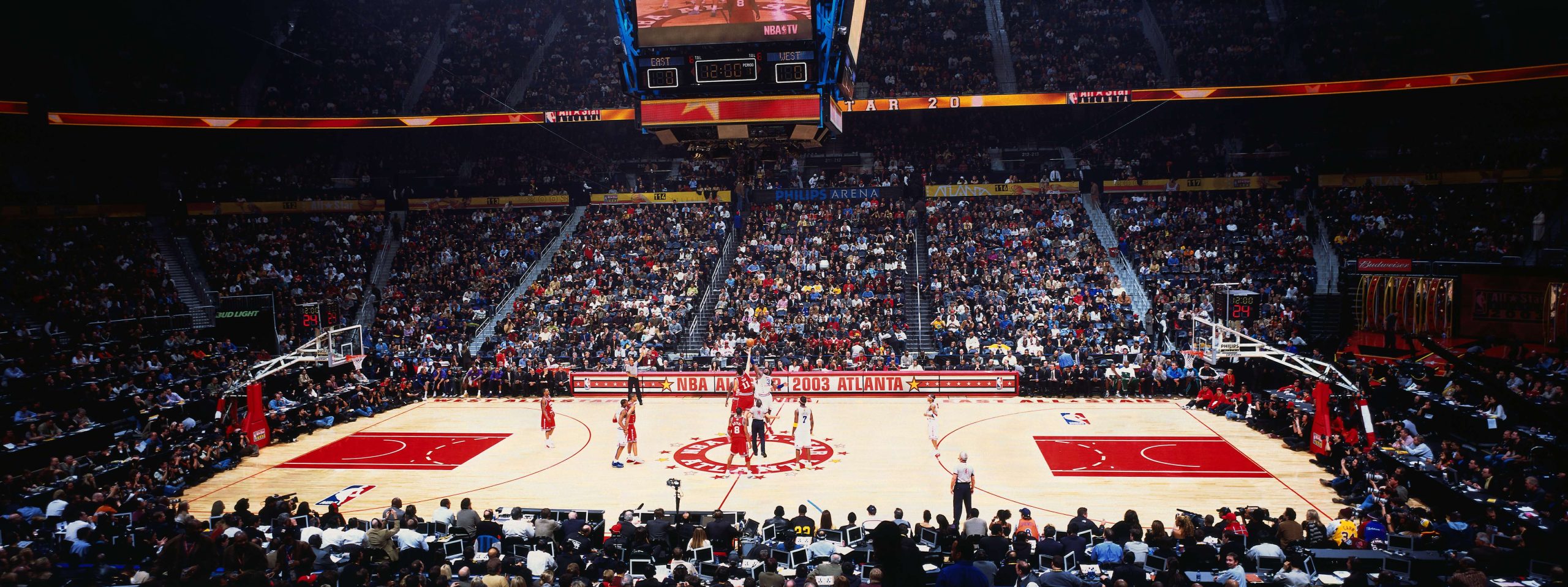
By the time you’re reading this, the League will be getting ready to host the 72nd Annual All-Star Game in Salt Lake City and if we’re lucky, it’ll be a classic much like Atlanta’s game 20 years prior. Generally speaking, ‘03 is a year strongly etched into the memory of all within the culture. Baggy pants, bulky kicks, triple-layered headwear, spinning rims, Playstation 2… could it have all been so simple then?
The 2003 NBA All-Star Game was one of the most stacked events of all time, both in star power and personality. Society was reaching a breaking point when individuality, charisma, and style were placed on a similar level as skill. The Western Conference All-Stars included Steve Francis, Kobe Bryant, Kevin Garnett, Tim Duncan, and Yao Ming as starters, with Shaquille O’neal, Shawn Marion, Dirk Nowitzki, Steve Nash, Gary Payton, Stephon Marbury, and Peja Stojakovic coming off the bench. The West was helmed by then-Sacramento Kings head coach, Rick Adelman. Peja was an injury replacement for his teammate Chris Webber.
The Eastern Conference All-Stars included Allen Iverson, Michael Jordan, Tracy McGrady, Jermaine O’Neal, and Ben Wallace as starters, with Jason Kidd, Vince Carter, Paul Pierce, Brad Miller, Jamal Mashburn, Antoine Walker, and Zydrunas Ilgauskas coming off the bench. Isiah Thomas, who coached the Indiana Pacers at the time, led the charge for the East.
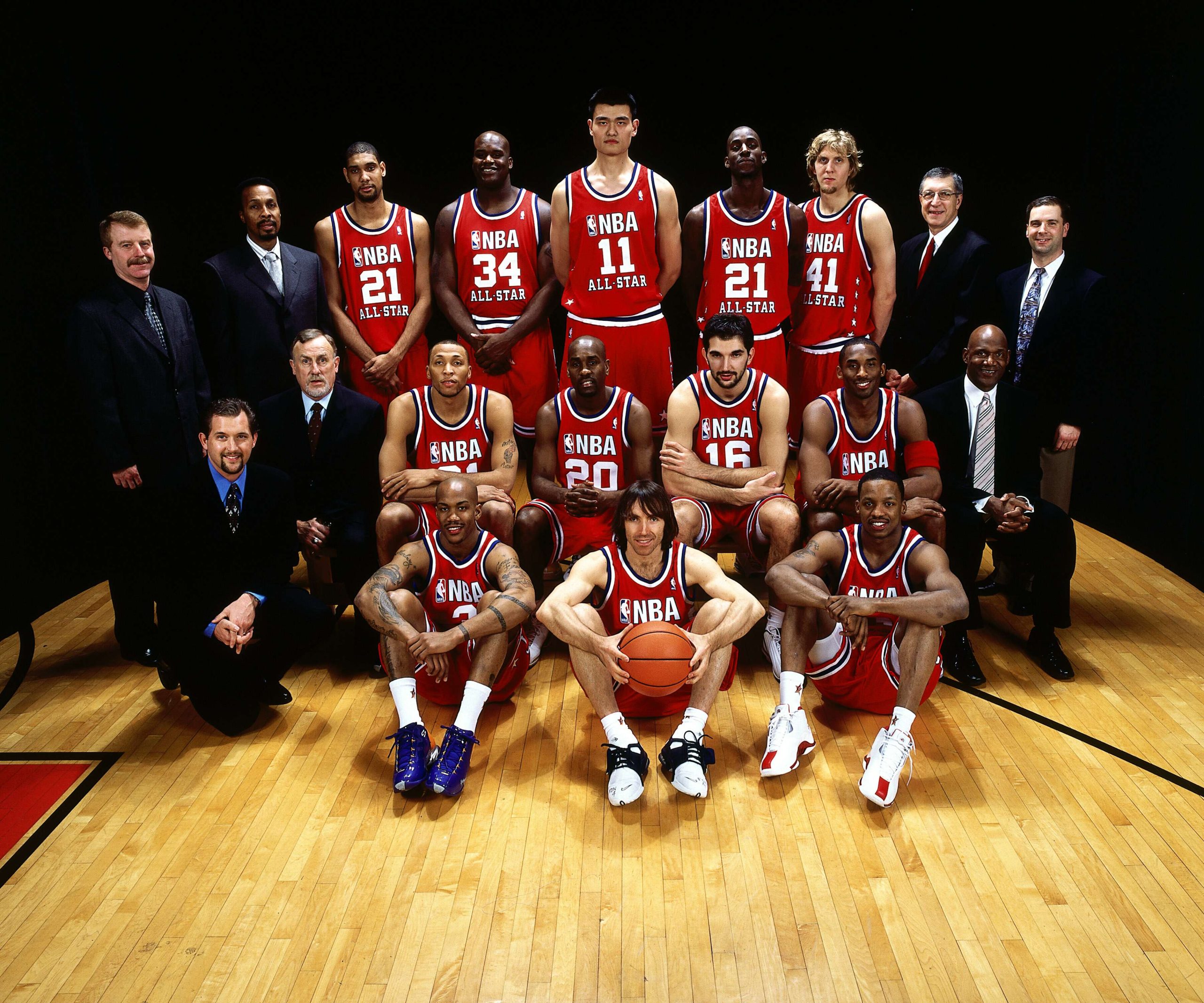
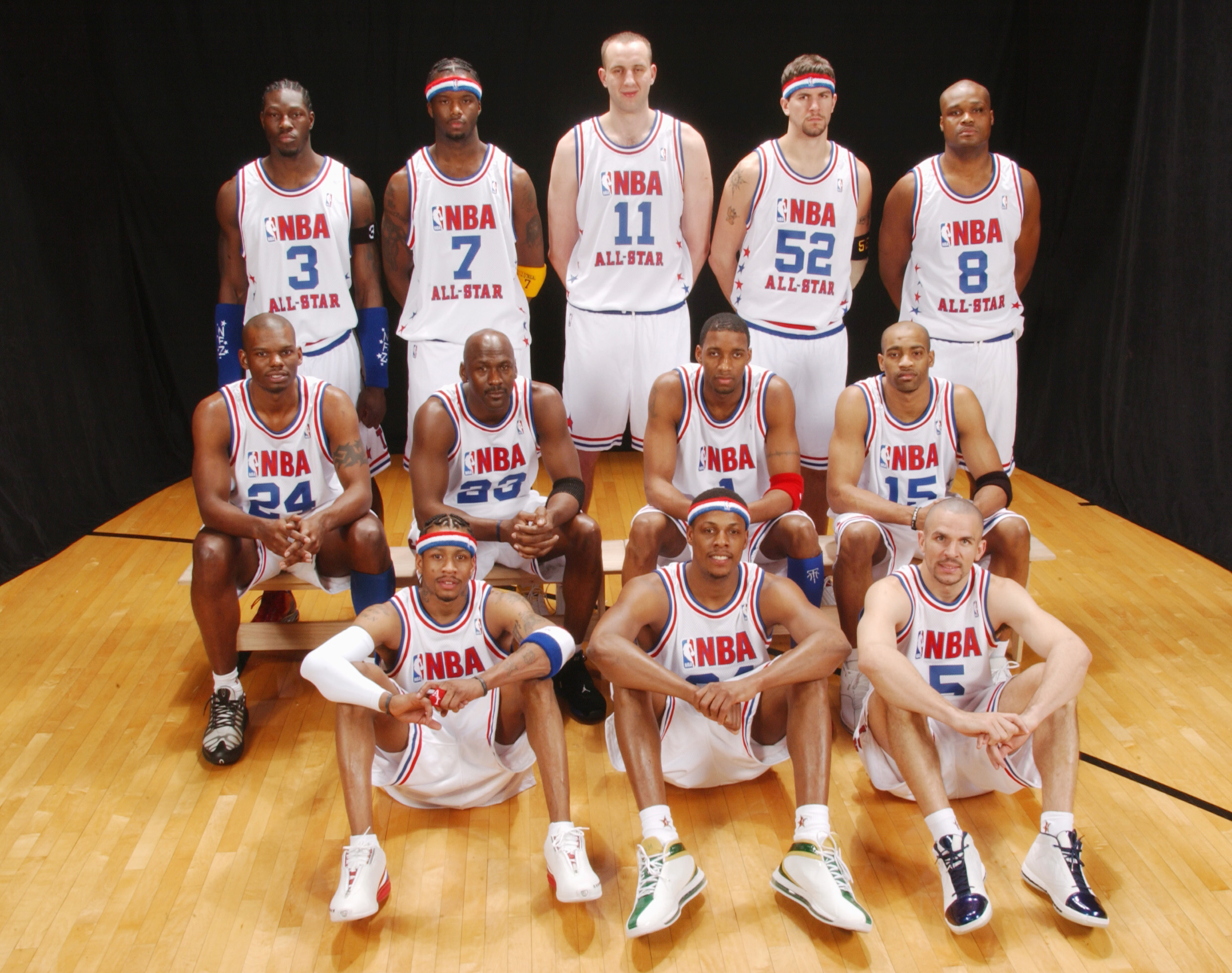
There are a lot of things you may have forgotten about the 2003 NBA All-Star Game. So, allow us to remind you.
First off, the jerseys. It marked the first time since the ‘90s that the NBA designed and deployed All-Star Game jerseys. In the previous five years, players just wore their own jersey from their respective teams (All-Star Weekend in 1999 was canceled due to the lockout). And the jerseys were fresh as hell. The retro design recalled some of the late ‘80s All-Star Game jerseys, swapping out the short shorts for a baggier option.
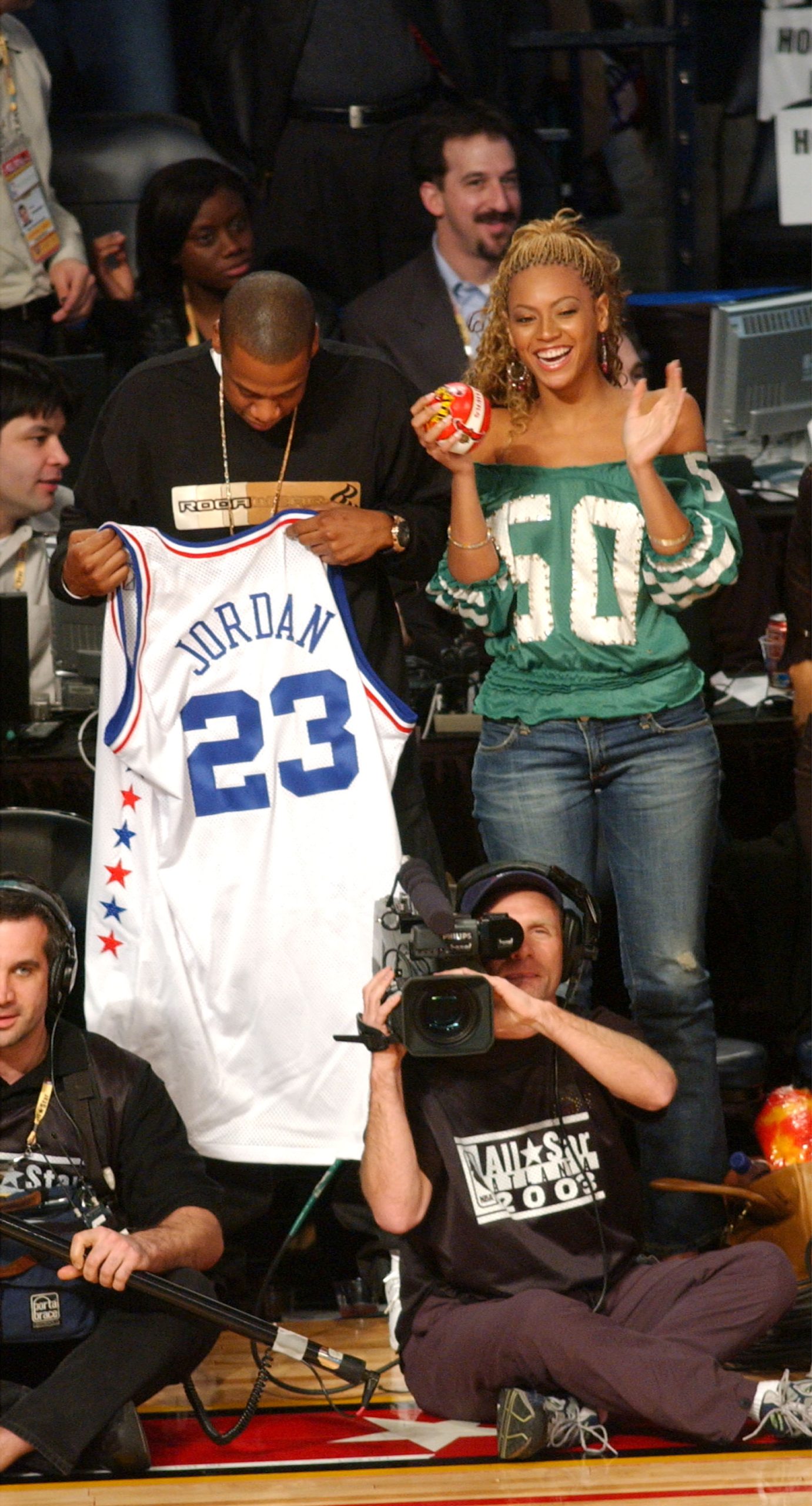
The main focus entering All-Star weekend was Michael Jordan, who was preparing to retire for a third and final time. He was a starter and an All-Star for the 14th time in his career, an accomplishment that didn’t come without its fair share of controversy. Allen Iverson and Vince Carter were both near at the peak of their popularity in 2003 and were voted as the starting backcourt for the Eastern Conference by the fans. Carter had missed a big chunk of games that season as a result of injury and there was a ton of pressure on him to give up his starting spot to Jordan. He resisted the notion for quite some time but he eventually relented and gave up his starting spot to his elder UNC alum just before gametime. The scrutiny turned ugly after a while, and the Atlanta crowd even booed Carter when he was being introduced before the game.
For the record, Jordan was perfectly fine with coming off the bench. When asked about it during the game, Jordan said, “Vince surprised me. I told him as I told the rest of the players, I started 13 times, I didn’t need to start [a] 14th time. You know, they were adamant about getting me to start. Vince actually came to me right before we went out and said that he would love for me to take his spot. He’s very respectful. I think he took some undue punishment, all during this week about him being very honorable to the fans, and even at the end, when he gave it up, I really didn’t want him to back down from what he actually stood for and I’ve supported him in that sense. But he wanted me to take his spot and I thought it was very gracious of him and very respectful.”
Problem solved, Jordan started.
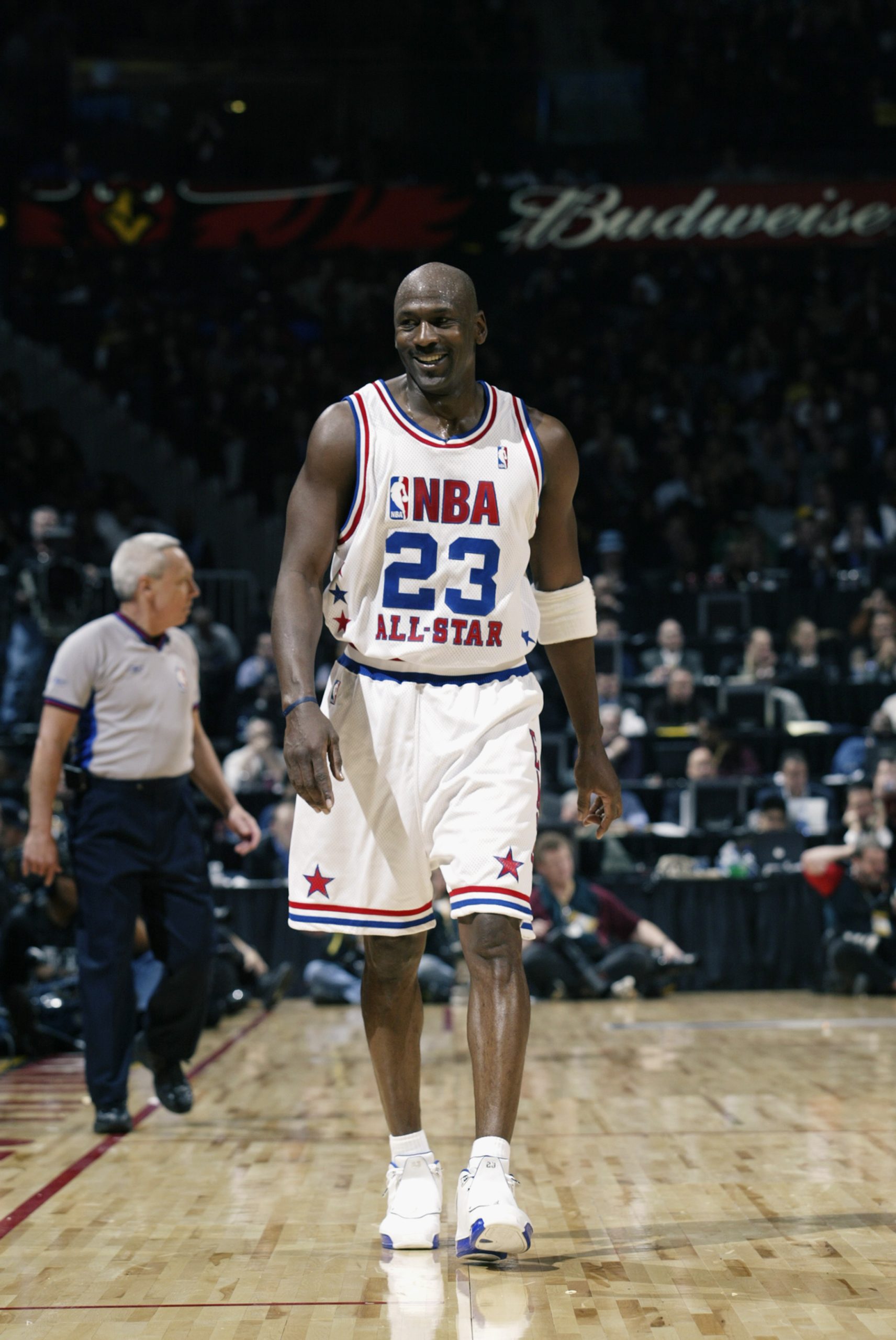
Another wrinkle out of the gate was Jordan’s coach for the game, Isiah Thomas, who is arguably Jordan’s biggest rival and definitely his most prevalent foil. If Jordan had a nemesis, it was Zeke (or Jerry Krause). But Thomas had coached the Pacers to the best record in the East by the break, so he was his coach for the night. Infamously, there is a conspiracy that Isiah Thomas led a charge to freeze Jordan out of his first All-Star Game in 1985. Jordan was a rookie and finished the game with seven points on 22.2 percent shooting in a 140-129 loss. And now 18 years, two retirements, and 13 All-Star appearances later, Michael Jordan was the elder statesman in the All-Star Game, with Yao Ming as the lone rookie to participate in the game.
Jordan, however, was aggressive but wasn’t hot right out of the gates. He started the game 0-7. He began the game only 10 points behind Kareem Abdul-Jabbar for the most points in the All-Star game’s history and the Atlanta crowd was hungry for him to break the record (a record that’s been snapped by the late-Kobe Bryant and LeBron James since then). Each missed attempt by Jordan was followed by hushed sighs of resignation by the crowd but the voracious outbreak when he finally made a jumper was well worth the wait.
The first quarter was a relatively competitive defensive performance for both sides, the first quarter ended with the East leading 23-18 off the strength of a 13-0 run. Jordan never really got any hotter from the field, but he eventually broke the record and finished with 20 points on 9-27 (33.3 percent) shooting.
The pace and level of play picked up considerably but the defensive effort faltered in the second quarter when the reserves checked in. The signature playground style of all-star ball had infiltrated every corner of the game and it was fun as hell. A sequence of lobs from Brad Miller to Vince Carter followed by Stephon Marbury to Shawn Marion early in the second quarter was especially electrifying. Shortly afterwards, Dirk Nowitzki went on a mini-heater in two minutes and scored all nine of his points for the night. All-Star games are interesting in that way. Basketball is improvisational like jazz and these are the best artists in the world. You never know when a player might go off onto a solo and strut his shit.
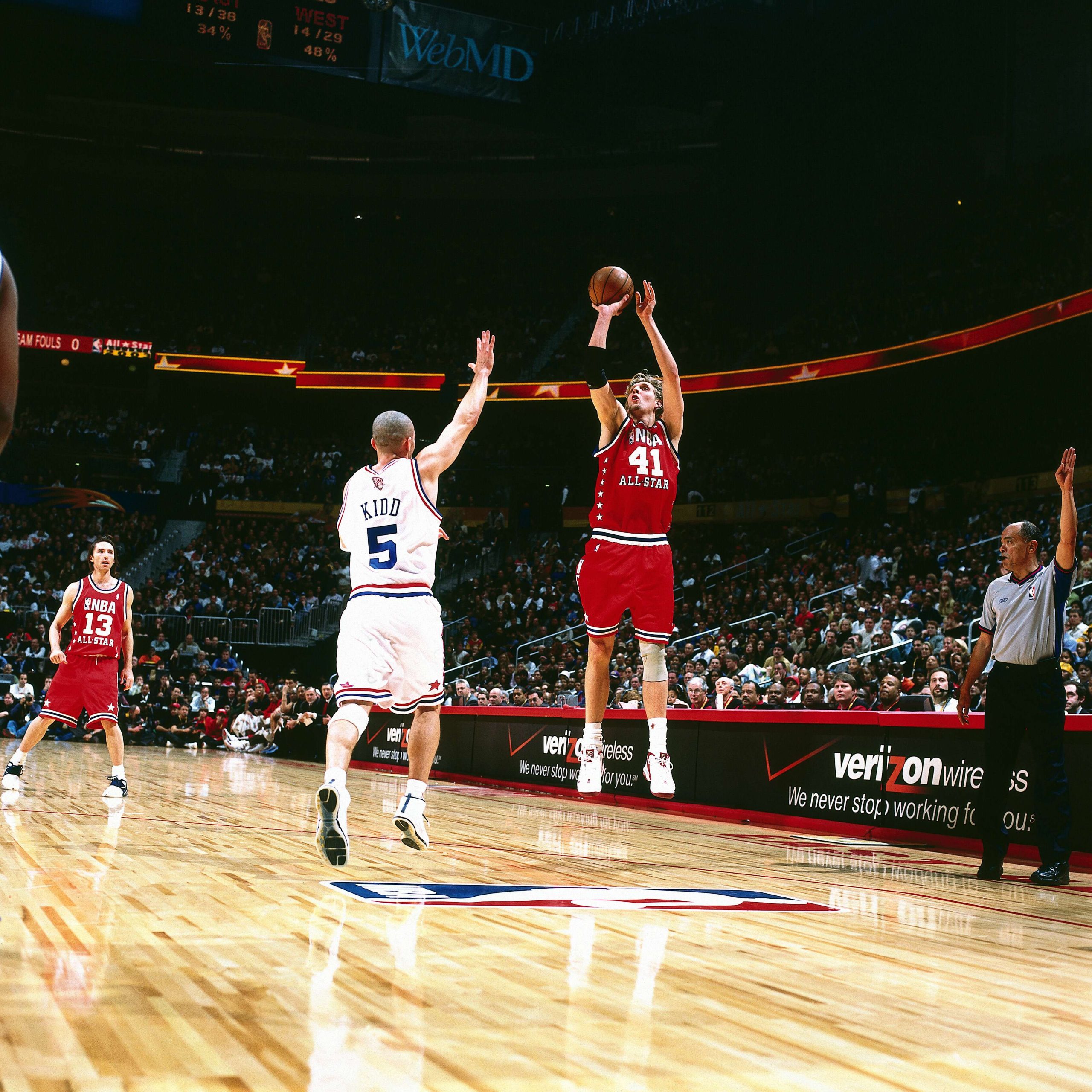
Rick Adelman decided to indulge every hoops fan everywhere and played a lineup of Francis-Garnett-Duncan-Shaq-Yao. If any lineup with four seven-footers could work in a real game, I feel like this would be the one. Great mix of shooting, passing, mobility, length, and defense. They went on an 8-2 run in just over two minutes to secure a 55-52 lead heading into halftime.
Halftime was a show in itself. The NBA had orchestrated a tribute for Michael Jordan that involved Mariah Carey coming out and singing in two different Jordan jerseys. She sang “Boy (I Need You)” while wearing a mini-dress styled to look like Jordan’s Bulls jersey. While they played a montage of Jordan highlights, Seinfeld clips, Gatorade commercials, SNL monologues, and Spike Lee poetics, Mariah Carey changed into a floor-length dress designed after Jordan’s Wizards jersey.
Mariah Carey gave chilling renditions of “My Saving Grace” and “Hero” at the center of a stage placed on the court. Jordan was moved to tears during the performance and Mariah Carey introduced Jordan to the crowd for an opportunity to address them. It took the standing ovation over a minute to calm down enough for Jordan to even get any real words out. When he could finally speak, he tearfully thanked the fans, his family, and expressed his gratitude for being able to pass the game along to the next generation. Much of the next generation was sharing the floor with him in this game and they’d determine how it would end.
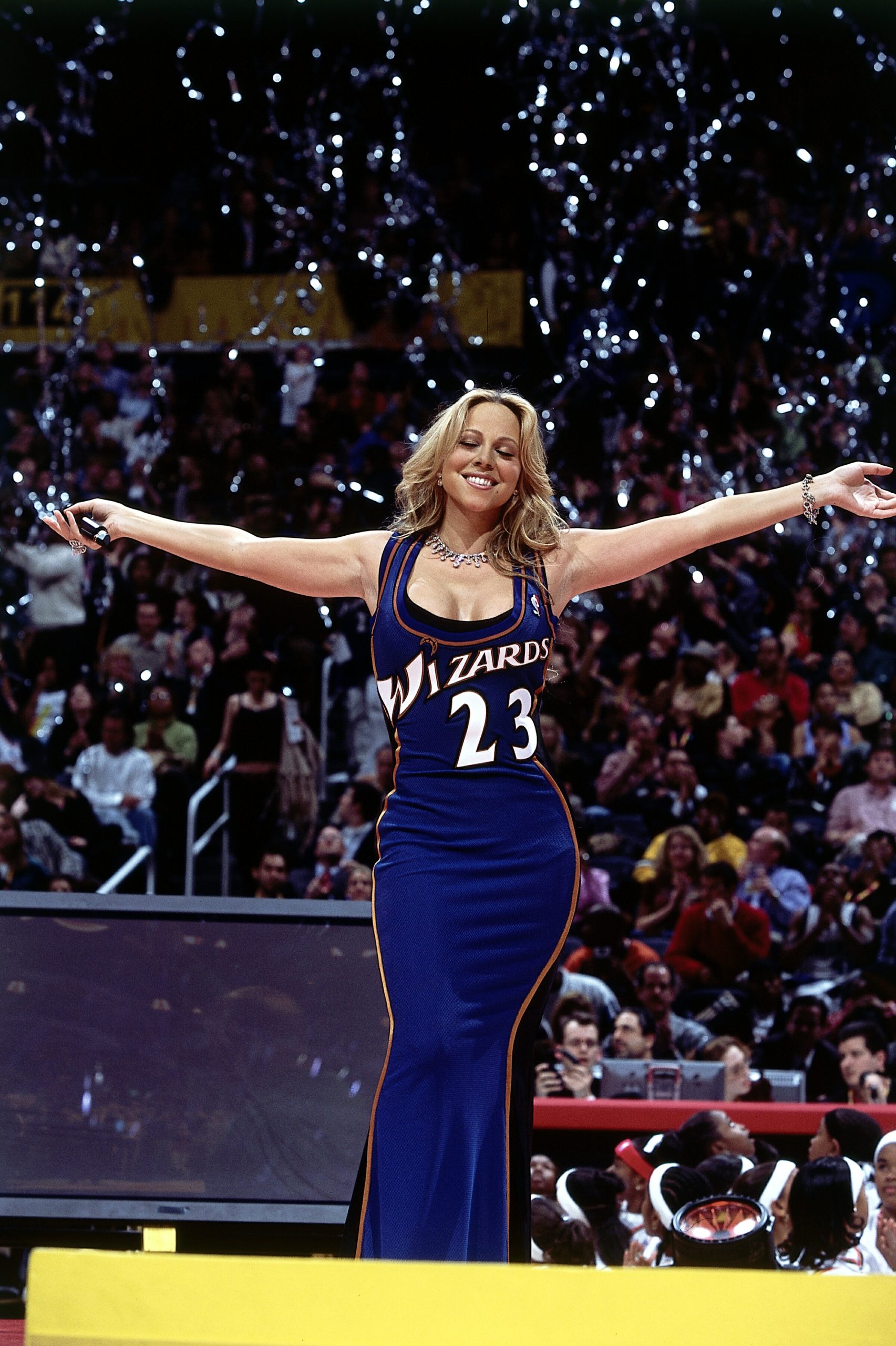
If basketball is jazz, Tracy McGrady’s third quarter was like Miles Davis at his peak. He was cashing jumpers from all over the court and making daring forays to the cup, it was very clear why he was arguably the best scorer in the world at that moment. Iverson got it going as well with the pass-first Jason Kidd by his side in the backcourt to start the half rather than Michael Jordan. For the West, Kevin Garnett continued his impressive play on both ends of the floor. He hardly missed anything and remained a conduit of unbridled energy. Kobe got it going as well after pretty much sleepwalking through the first half.
In the third, Shaq was throwing Jordan’s layup back to the three-point line. The crowd booed Shaq for hampering their hero but the East largely controlled the third quarter, eking out a 93-86 lead heading into the final frame.
As usual the fourth quarter was more competitive than the rest of the game. Shaq dominated the reserve minutes but most of the Eastern Conference starters remained on the floor, even at the beginning of the quarter. Both of the Boston Celtics young guys, Paul Pierce and Antoine Walker, complained about the lack of playing time they received in the game. Zydrunas Ilgauskas of the Cleveland Cavaliers did not publicly complain but he only played four minutes. Isiah Thomas met all complaints with a closed ear, “it’s my team” he commented.
Michael Jordan is one of the clutchest players in NBA history, if not the most clutch. He had won games, and championships, with his elite shot making ability with the game on the line. With 10.1 seconds left and the game tied at 120 a piece, and a young Shawn Marion on him with overtime looming, Jordan posted up in complete isolation. He took a few dribbles in the midpost, then turned over his shoulder and shot his patented turnaround jumper. He missed. The crowd sighed as it clanged off the rim. Overtime, the sixth instance this happened in All-Star game history.
And then it’d eventually go into double overtime—the first time in NBA All-Star game history.
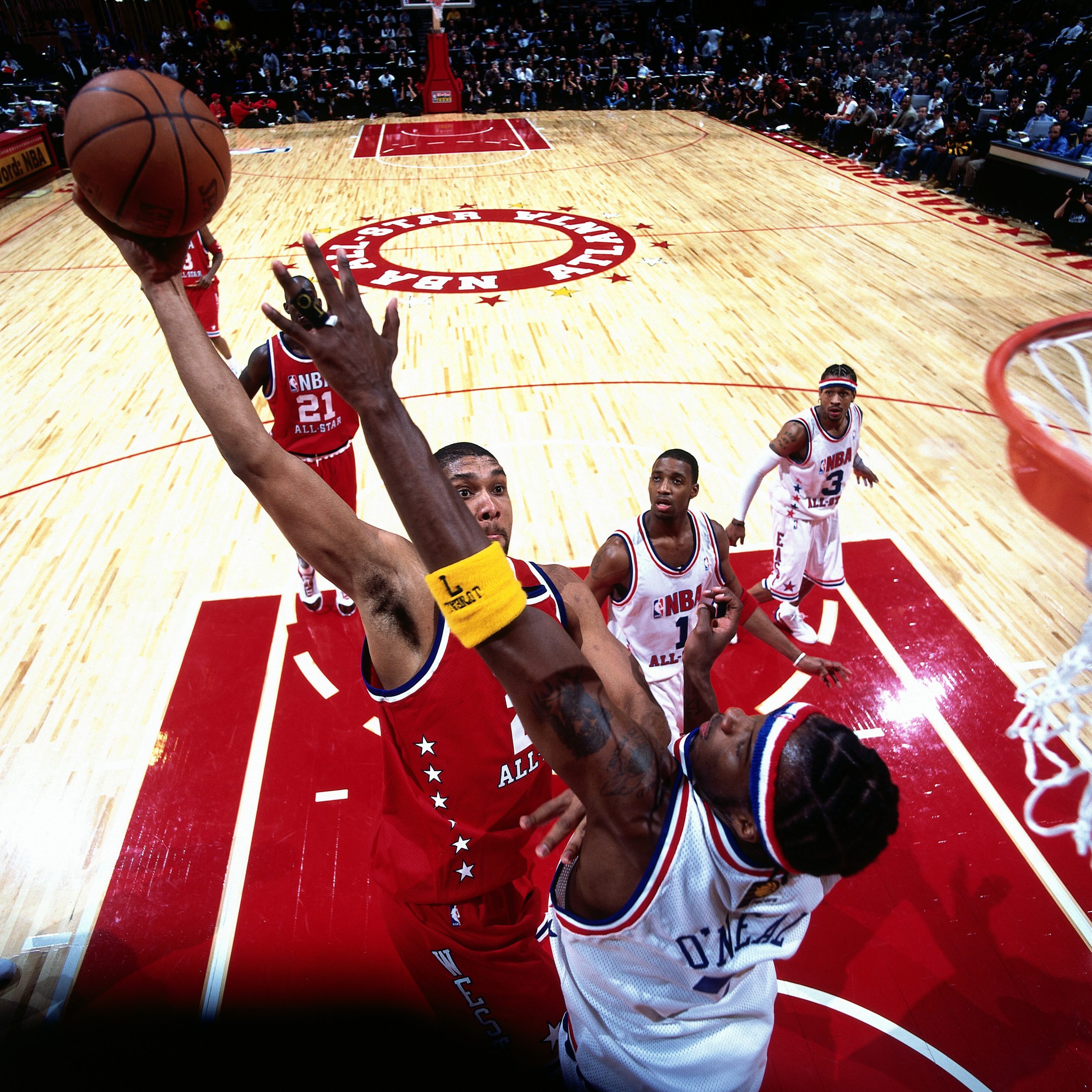
Isiah Thomas must have felt guilty about the lack of minutes allocated to his bench players (along with the starters probably being exhausted with the extra basketball time on this night) because he put in a few guys who hadn’t seen many minutes down the stretch to start double OT. The West quickly jumped out to a lead and never relinquished it again. Garnett dominated against the smaller East lineup, finishing with 37 points on 70.8 percent shooting. The West held on to win the game 155-145 despite Iverson’s best efforts.
The game came to a close with the usual procession of handshakes, hugs, and high-fives, as the players rushed to get off to a night on the Atlanta streets. Peace to mankind, it was a beautiful time to be alive.
Photos via Getty Images.